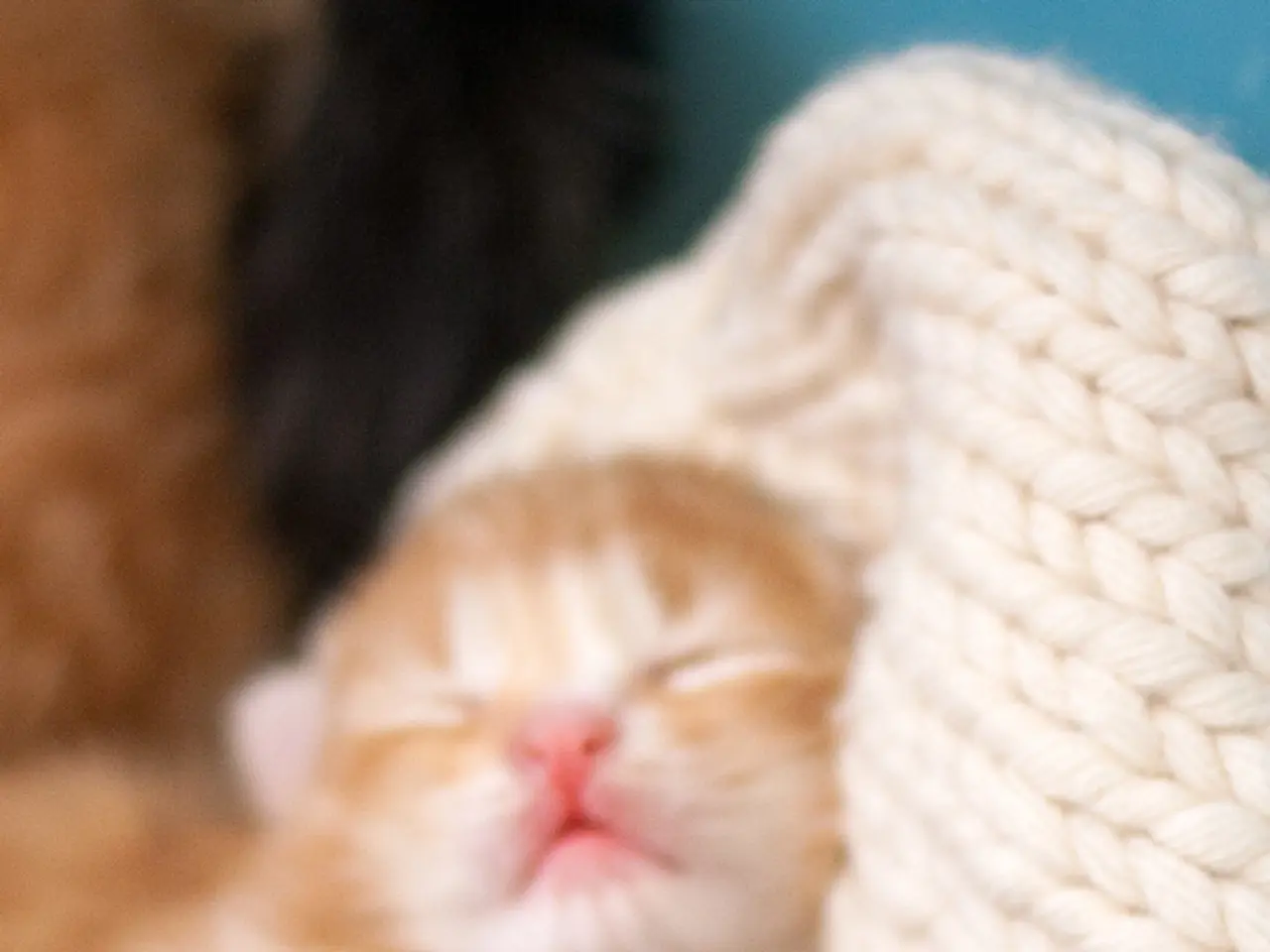Pregnancy in Cats: Recognizing 10 Signs and Providing Appropriate Care as Revealed by the Vet
In the world of felines, pregnancy is a significant event that requires special care and attention. Here's a guide to help you recognise the signs of feline pregnancy and understand the necessary steps to ensure a healthy pregnancy.
A pregnant cat's appetite may increase due to the energy needs of growing kittens. This increased appetite, along with a large, rounded belly that doesn't squash much when the cat lies down, and nipples that may turn pink and grow larger, are common signs of pregnancy. However, it's important to note that changes in a cat's appetite or behaviour can also be caused by factors other than pregnancy.
If a cat is suspected to be pregnant, the first step is to take the cat to the vet for confirmation and to determine the stage of pregnancy. Ultrasounds are better for confirming pregnancy early, while x-rays are better later in pregnancy and can help determine the number of kittens a cat is expecting.
Pregnancy hormones can cause a cat to become more affectionate or more aggressive. Other signs of pregnancy may include a cat sleeping more to conserve energy for growing kittens, and a small amount of clear discharge from the pregnant cat's vulva near the end of pregnancy.
It's crucial to provide a suitable diet for pregnant cats and their newborn kittens. Kitten food is recommended as it contains more calories to meet the cat's increased metabolic requirements. The Royal Canin Feline Health Nutrition Mother & Babycat Ultra Soft Mousse in Sauce Canned Cat Food is a suitable diet for this purpose.
However, there are some potential health issues to be aware of during pregnancy. Pyometra, a womb infection, can cause appetite changes, bloated belly, vomiting, and lethargy, which can be mistaken for pregnancy symptoms. Phantom pregnancy, a rare condition in cats where there are no foetuses but the body behaves as if there are, can also mimic pregnancy.
In some cases, a spay procedure can be offered to abort kittens if the pregnancy is unexpected and not too far along. It's essential to consult with a vet to discuss the best course of action in such situations.
Lastly, it's worth noting that cats can get pregnant from as young as four months of age and will cycle every three weeks until they are spayed or mated. In very northern climates, cats might not cycle over the winter, but in general, they will be in heat every three weeks for the rest of their lives.
In conclusion, recognising the signs of feline pregnancy and providing the necessary care can ensure a healthy pregnancy for both the mother cat and her kittens. Regular vet check-ups are crucial to monitor the pregnancy's progress and address any potential health issues promptly.
Read also:
- Understanding Hemorrhagic Gastroenteritis: Key Facts
- Stopping Osteoporosis Treatment: Timeline Considerations
- Tobacco industry's suggested changes on a legislative modification are disregarded by health journalists
- Expanded Community Health Involvement by CK Birla Hospitals, Jaipur, Maintained Through Consistent Outreach Programs Across Rajasthan








